 When you’ve explored crime fiction from Sweden, Norway, Denmark and Finland, there’s always Iceland to extend your horizons. But where can the lover of Nordic noir go after that? Well, one destination is the Faroe Islands. Settled by the Vikings over 1000 years ago, these 18 pieces of windswept rock in the North Atlantic are barely inhabited, have barely any actual murders, and few mystery writers. Yet they form a perfect seascape for Nordic-inspired noir. A year ago, screenwriter and novelist Chris Ould introduced readers to Detective Jan Reyna, a character born in the Faroes but raised in the UK. Reyna has returned to the islands of his birth and first featured in The Blood Strand. Now, English author Chris Ould has released The Killing Bay, and we just had to know more…
When you’ve explored crime fiction from Sweden, Norway, Denmark and Finland, there’s always Iceland to extend your horizons. But where can the lover of Nordic noir go after that? Well, one destination is the Faroe Islands. Settled by the Vikings over 1000 years ago, these 18 pieces of windswept rock in the North Atlantic are barely inhabited, have barely any actual murders, and few mystery writers. Yet they form a perfect seascape for Nordic-inspired noir. A year ago, screenwriter and novelist Chris Ould introduced readers to Detective Jan Reyna, a character born in the Faroes but raised in the UK. Reyna has returned to the islands of his birth and first featured in The Blood Strand. Now, English author Chris Ould has released The Killing Bay, and we just had to know more…
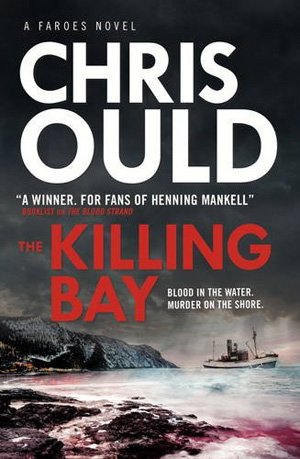 What are crime fiction lovers going to love about The Killing Bay?
What are crime fiction lovers going to love about The Killing Bay?
Well, it’s the second novel in a trilogy featuring DI Jan Reyna and Faroese detective Hjalti Hentze. I’ve tried to frame each of the books in such a way that it isn’t critical to read them in order, which is always the tricky part of writing a series – you don’t want people to feel excluded if they come late to the books, but you also want to reward the readers who follow them from the beginning. Anyway, The Killing Bay picks up a couple of weeks after The Blood Strand ends and it focuses on the death of an anti-whaling protester from a group who have come to the islands to try and prevent the traditional whale drives, the grind. To me, The Killing Bay is perhaps the most Faroese of the books so far because having established the setting and characters in The Blood Strand I felt much more at ease when I came back to them for a second time.
Why did you choose the Faroe Islands as a setting, and how do they impact your story?
The Faroes are a fantastic place, and I guess the main reason for going there initially was simple curiosity and being intrigued by a close-knit community out in the middle of the Atlantic. I was certainly looking for somewhere different and interesting to use as the setting for a book, but until I went there for the first time I had no idea just what sort of opportunities the islands would hand me.
On the first day of that first trip I drove to a place called Saksun and walked down to the beach which is almost entirely encircled by cliffs. It was very atmospheric, especially in driving rain and strong wind, and there in the sand was the half-buried carcass of a sheep. It was one of those moments when you think, ‘Yeah, this would be a really great place for someone to find a dead body.’
After that I was pretty much sold on the idea that I just had to see as much of the islands as possible and find out a lot more about them.
I only had a half-formed idea about the sort of story at that point, so in many ways the islands, the people I met there and the things I found out all informed the process of creating the story as it is now. In particular, I was able to find someone in the police department who was happy to talk to a weird Englishman about Faroese police procedure, and as is always the case if you can get coppers to talk, all sorts of interesting facts and stories came out. For me that was just great. Jens and all the other officers I’ve bothered over the last few years are really what’s made it possible to write the books.
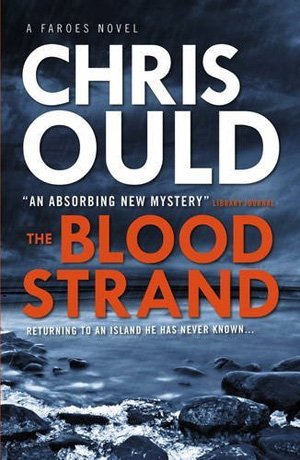 Are you happy to be considered part of the Nordic noir movement, and where do you think you fit in?
Are you happy to be considered part of the Nordic noir movement, and where do you think you fit in?
Writers spend way too much time on their own, so I’m always happy if someone thinks I’m part of a gang. Actually, someone coined the term ‘Scandi-Brit’ recently and I feel a little more at home with that, given that one of my main characters is British and I am clearly not of recent Scandinavian descent. I didn’t particularly want to start writing under the name of Øuld either – although it was suggested – so if I can have a little Scandi-Brit niche with a couple of the other writers I’ll settle for that.
I’m not a great one for characterising books or films by comparing them to others so it’s hard for me to say where the Faroes novels sit on the Nordic noir spectrum. By and large I think the native Scandinavian writers have a much greater awareness and interest in politics and the political background to their stories than I include in my own. I think they may also be a little more fascinated with serial killer plots, rather than procedurals. That said, if I fit into the Nordic noir church at all I think it’s somewhere quite a long way from cosy but not entirely bleak. Maybe that also sums me up as a person, too.
In the book there’s the tension between local traditions, and how they are viewed globally. What attracted you to this theme, and why does it make for such fertile ground for crime fiction?
As Quentin Bates, another Scandi-Brit writer, said to me recently, it would be pretty hard to write about the Faroes without mentioning the grindadrap or grind, especially given Sea Shepherd’s recent activities in the islands. They made the grind into a contentious issue – which it wasn’t necessarily before – and now that they have, ignoring the subject would be like never mentioning the fact that the islanders speak Faroese. And, of course, wherever there’s conflict and/or disagreement and feelings run high, that’s a fantastic background for a crime writer to conjure up a plot.
In The Killing Bay I’ve tried to walk a middle ground in terms of how I portrayed the whale killing issue: in other words, to stay balanced and objective. What came to interest me most, though, was the slightly different debate about how acceptable (or not) it is for one group of people to try and inflict their views on people whose traditions go back for a millennia. I suppose in the end it comes down to your view of the world, and where you’re looking at it from. However, I have to say that from where I’m sitting, the portrait painted of the Faroe Islanders by the Sea Shepherd organisation and others like it isn’t one I recognise.
What’s next for you?
At the moment I’m nearing the end of the first draft of The Fire Pit, the third book in the trilogy – although not necessarily the last to feature Hjalti Hentze. As it stands, this book is a little longer than the previous two, and different again in its tone: darker, perhaps, and a little more disturbing. Once that’s finished and delivered, I have a couple of other projects which have been on hold. One’s Scandi, one’s not, so I’m looking forward to a change of setting and character. Not that I’m tired of the Faroes – very much the opposite – but three years is a long time to live in one place with one set of characters, so I’d just like to stretch my legs in a different place for a while. After that I have a new Faroes-based idea to work on, and to research. I’ll enjoy that.
The Killing Bay is available from 21 February 2017. Watch for our review. If you’re interested in more Faroe Islands-based crime fiction, try Craig Robertson’s The Last Refuge.








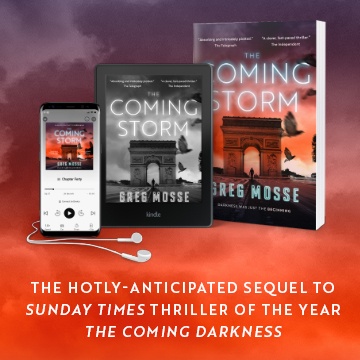
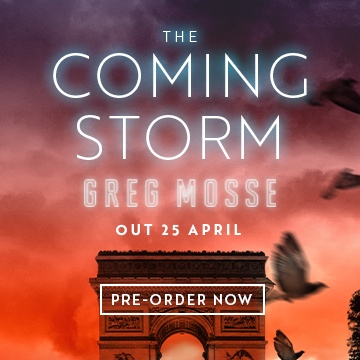
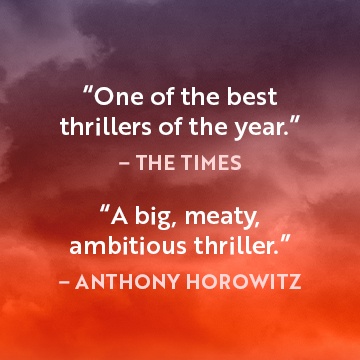
I am looking forward to a follow up to the third Faroe Island series. I love these books and the writing. I have fallen in love with the Faroes and Chris Ould’s writing. Please another Faroe book
I am nearing the end of The Fire Pit and am so hopeful to get more stories starring Hjalti Hentze and the Faroes. Yiou indicated you were not done with this back in 2017. Any updates??